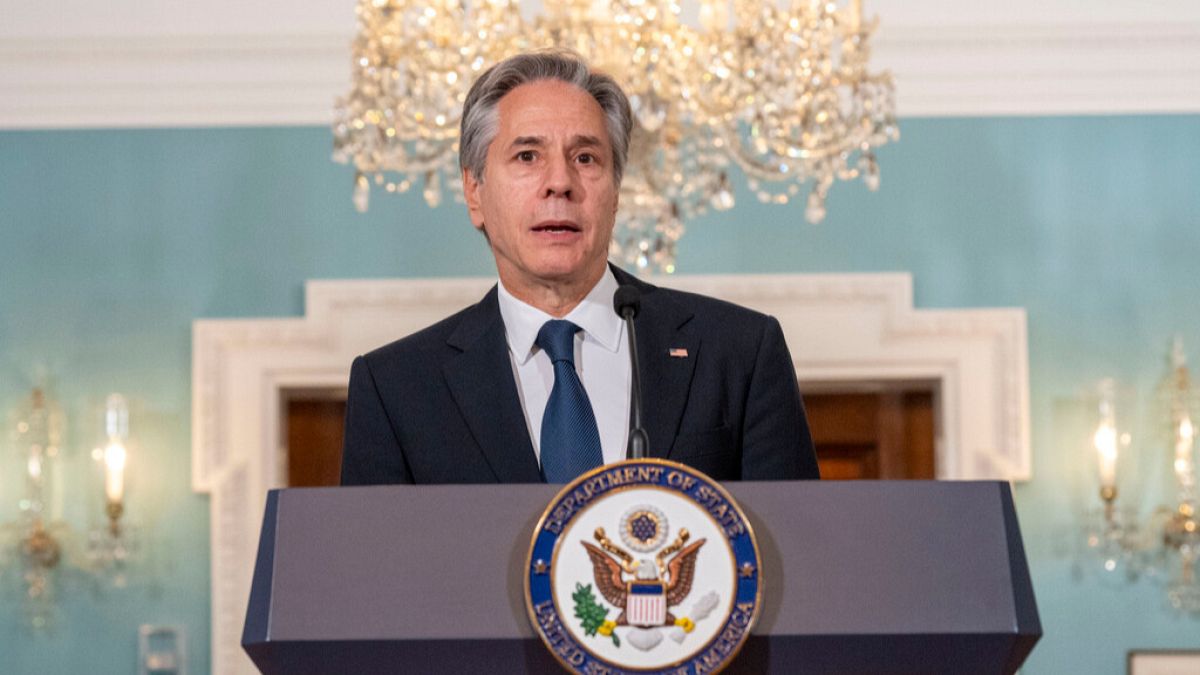Blinken heads to Brussels for urgent talks on Ukraine after Trump win

The State Department is set to hold talks in the Belgian capital on how to boost support for the war-torn country before Trump takes over in the transition of power.
US Secretary of State Antony Blinken is heading to Europe for urgent meetings with EU and NATO officials on Ukraine, in the shadow of Donald Trump’s impending return to the White House.
The US State Department will hold talks in Brussels on Wednesday on how to boost Ukraine’s support, anticipating a shift in US foreign policy following the transition of power to president-elect Trump.
Trump has previously suggested that he would curtail US military aid to Kyiv after he takes office as part of a general push towards an “America first” approach to foreign policy.
When Ukrainian President Volodymyr Zelenskyy visited the US to promote his “victory plan” in September, Trump described the country as “demolished”.
He argued Ukraine should have made concessions to Russian President Vladimir Putin before he invaded and repeated his claim that he would put an end to Russia’s war against Ukraine.
Trump has not gone into detail about what his plans for ending the war would be.
During his first term, Trump sold Ukraine Javelin anti-tank missiles that the previous Obama administration refused to provide, which were crucial to Kyiv’s initial ability to fight off Russia’s full-scale invasion in 2022.
Nevertheless, the president-elect has been ambiguous about his concrete position on the war. In the sole presidential debate against his election opponent, Kamala Harris, Trump claimed that he wanted the war to end but refused to answer questions about how he planned to help end it.
According to data from the Kiel Institute, America is currently the largest supplier of military aid to Ukraine, with contributions totalling €84.7 billion between 2022 and 2024.
Incumbent US President Joe Biden has remained steadfast in his support for Ukraine, although he stopped short of fully endorsing the Ukrainian leader’s “victory plan”.
The US is currently entering what is known as a lame-duck session, which occurs between Election Day and the end of the two-year congressional term.
As Republicans wait for the next year to have full control of the White House, Democrats are trying to implement as many of their priorities as they can while they have the majority in the Senate.
As Biden’s National Security Adviser Jake Sullivan told in a recent interview, “President Biden will have the opportunity over the next 70 days to make the case to the Congress and to the incoming administration that the United States should not walk away from Ukraine, that walking away from Ukraine means more instability in Europe.”









